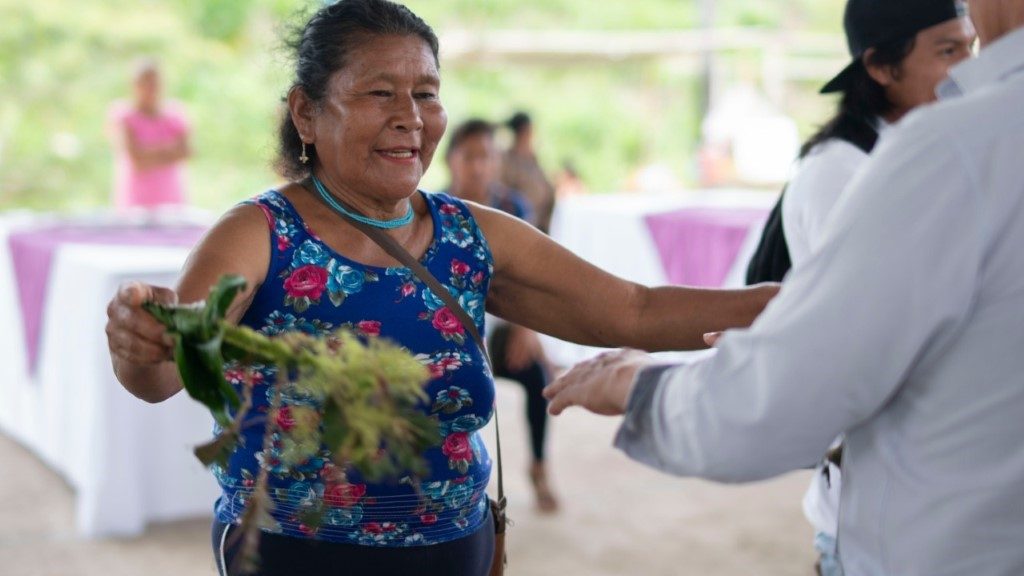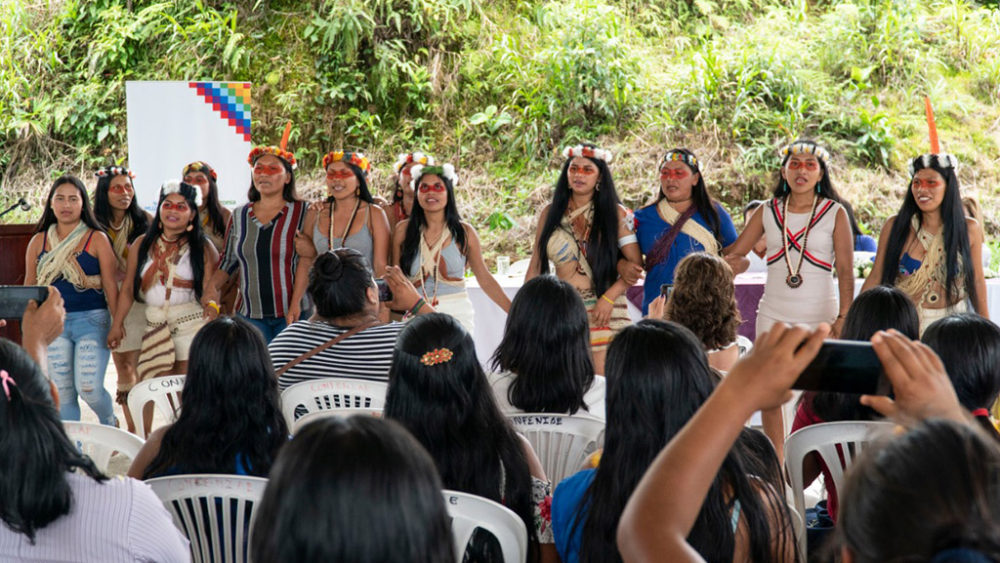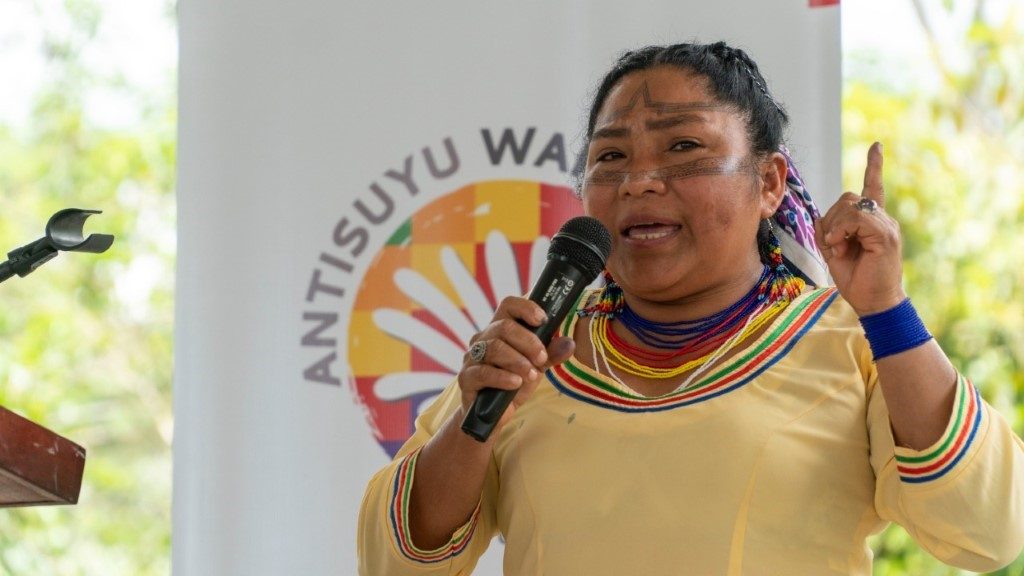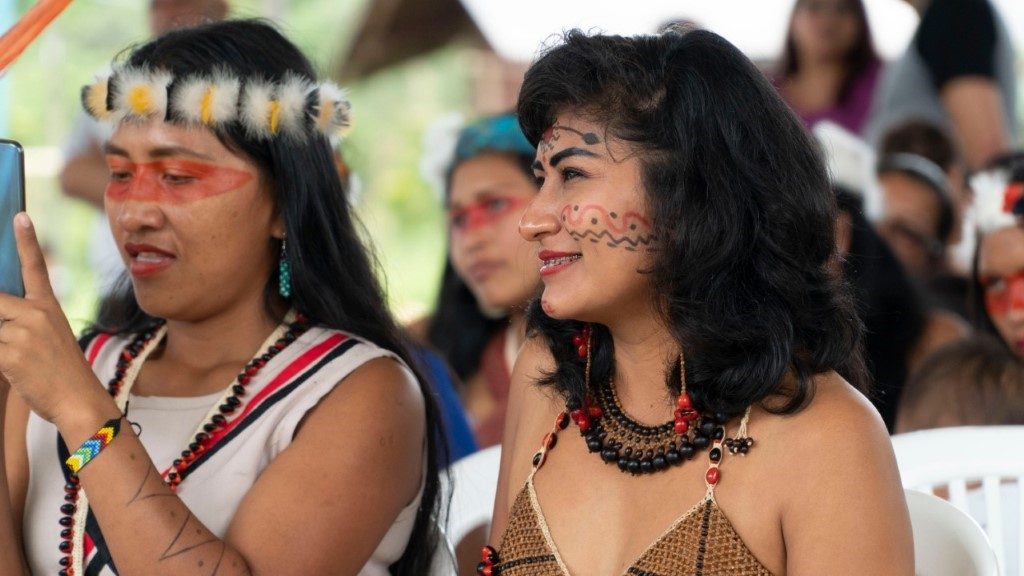Despite the discrimination and violence faced by rural women for generations, they are on the front lines of the fight against the global health crisis. To commemorate the International Day of Rural Women, which is commemorated every October 15, they told us about their resilience efforts.
“The situation of rural women is very painful; we are discriminated against and assaulted; we are subjected to structural machismo and now we are the most affected by the pandemic, and have to deal with COVID-19,” said Carmen Sukilanda, a woman leader of Intercultural Health and Food Sovereignty of the Confederation of Indigenous Nationalities of Ecuador (CONAIE).
The Executive Director of UN Women, Phumzile Mlambo-Ngcuka, pointed out on the occasion of the International Day of Rural Women, that: “The vital roles of rural women as farmers, workers, entrepreneurs, community leaders and first responders during crises are key to building peaceful, prosperous and sustainable societies. The COVID-19 pandemic threatens to roll back these significant contributions.”
The health crisis confronted rural women with new challenges: extended work hours in their daily efforts to maintain food security for their families and their communities, special measures to protect their families from the virus and in many cases, closed markets that prevented them from selling their products. Despite this, they found answers in the field.
Dominga Antú, vice president of the Federation of the Shuar Nationality of Zamora Chinchipe (FEPNASH-ZCH), stated that the pandemic did not limit her to working in her cassava and banana fields, caring for her chickens, or doing domestic chores; she also performed her functions as community leader.
Like Carmen Sukilanda and a large group of women of the Shuar, Kichwa, Waorani, Achuar, Shiwiar, Andwa, Siekopai, Cofan, Quijos and Saraguro nationalities, she participates in a training process at the Antisuyu Warmikuna School “Yachay Wasi,” where they analyze issues of gender equality, human rights and women’s rights as part of the project “Incorporation of a gender approach in the PROAmazonía program for the GEF Project” implemented by UN Women under an Agreement with UNDP.
It is essential to ensure the full participation of indigenous peoples and nationalities with gender equality to achieve the comprehensive objectives of the PROAmazonía program, an initiative led by the Ministry of Environment and Water (MAAE) and the Ministry of Agriculture and Livestock (MAG) with UNDP support.
The incorporation of a gender approach in decision-making in their organization and in their mechanisms helps overcome barriers to access that women face. When decision-making includes a gender approach, for example, women’s schedules, co-responsibility in caregiving tasks and the creation of safe spaces for women’s participation can be considered. According to the “Assessment of the situation of Amazonian women, UN Women – PROAmazonía” (October 2020), gender gaps are more marked in this region. On average, Amazonian women spend four times as much time on unpaid work as men.
Although Dominga and Carmen both agreed that peasant women face several forms of discrimination due to the pandemic, they found among themselves the necessary support to fulfill their needs. According to Carmen, due to biosecurity measures “some women who wanted to enter a bank were told that they should enter with gloves and masks, and perhaps our women did not have a dollar to buy those security implements,” but among themselves they organized kits and were helped to purchase products such as soap.
“We have seen that our mestizo sisters and brothers in the city have suffered a lot; in the countryside we have not lacked anything; I have fish, I have hens, I have cassava and if suddenly we need something, we get something else with what there is,” said Dominga, who noted that the pandemic made us all wake up.
Carmen noted that “we have to turn to the countryside, to our Pachamama, to our land and to our crops. Why don’t we appreciate them? We have seen in this pandemic how important ancestral medicine is, how important it is to turn to the countryside, which keeps us strong.”

Photos: Marcelo Echeverría – La Incre/UN Women, (November 2019)
Author: Julissa Guevara –Communication Consultant – UN Women
 Español
Español English
English


